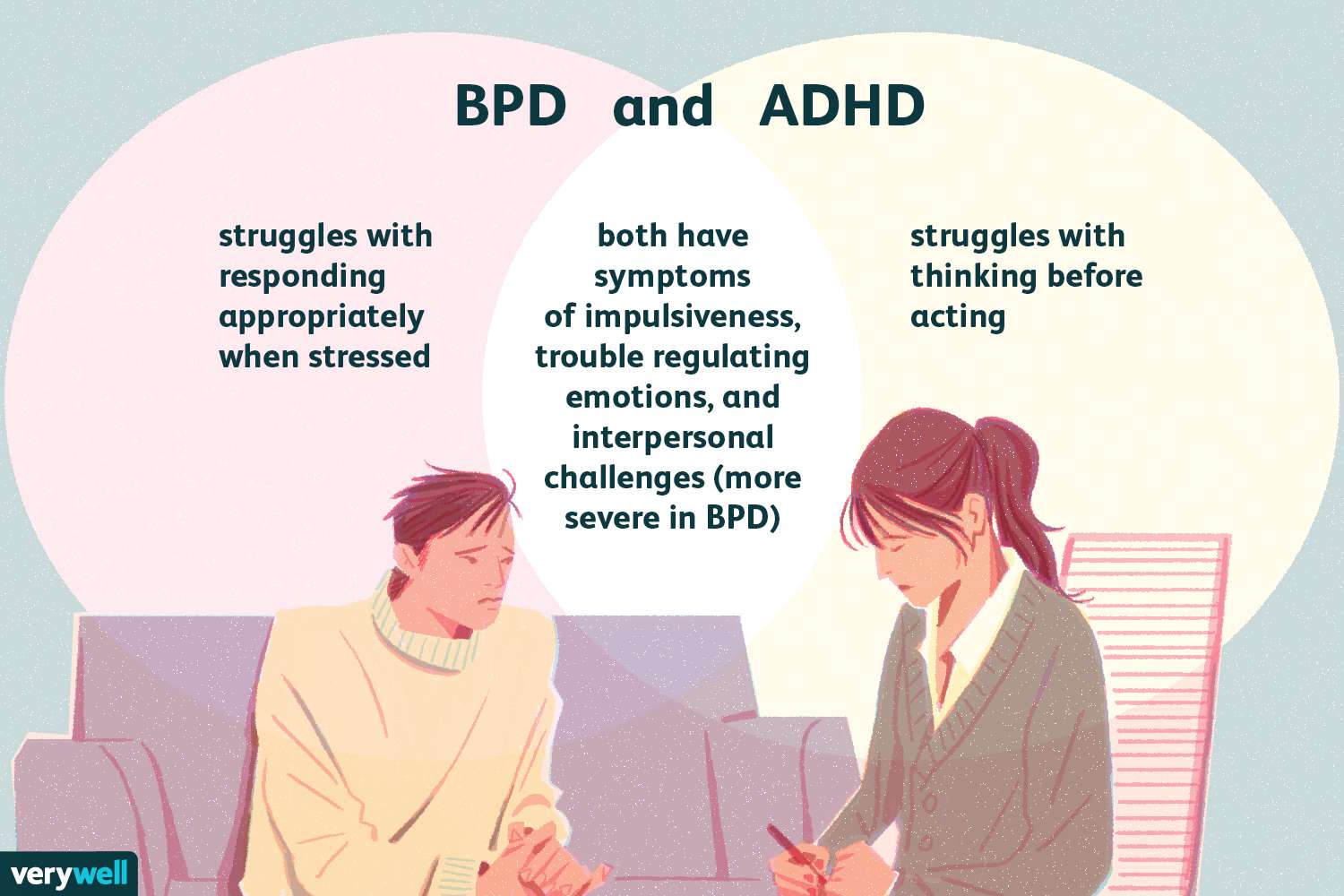Symptoms of ADHD and BPD
Symptoms of ADHD and BPD are often overlapped, making it difficult to distinguish between the two disorders. The main symptomatic overlap between the two disorders is in domains of impulsivity. It is therefore important to identify the factors that contribute to emotional dysregulation, and to avoid escalating to extremes.
Mood disorders and ADHD share similar symptoms in that they are characterized by inappropriate emotions that are excessive and uncontrollable. They also involve intense emotional reactions and are typically experienced regardless of the situation. In a mood disorder, the patient experiences manic or depressive episodes.
Despite the overlap between the disorders, there is a lack of evidence that their symptoms are correlated. Furthermore, studies on the relationship between genetics and BPD have been inconclusive. Some researchers have suggested that patients with both disorders might be classified in a different group. Although the underlying genetics of both conditions are unclear, there are a number of promising avenues for future research. Some of these include vulnerability genes and epigenetic research.

Another way of distinguishing the two disorders is by evaluating the severity of their corresponding symptoms. It is important to note that the differences in impulse control between the two disorders will affect treatment. This is especially true when it comes to medications. For instance, stimulants are the most effective treatment for ADHD. However, they do not help with emotional dysregulation. This means that you should seek help from a mental health professional to effectively manage your symptoms.
Those with BPD are more likely to engage in self-harm. This is because they have difficulty regulating their emotions and are more susceptible to interpersonal challenges. In addition, they may have a prefrontal cortex that cannot handle the surge of feelings. This means that they are not able to use context information to inhibit their prepotent response tendencies.
Those with BPD are also more likely to experience emotional stress. This can be related to perceived abandonment or to stressors in their relationships. It is also possible that BPD and ADHD sufferers have similar stress responses. This is because impulsivity is a symptom of both disorders. In a study conducted by Krause-Utz et al, it was shown that BPD patients are more prone to impulsivity in the face of acute stress. This led to the hypothesis that stress is an important factor in the development of both conditions. The study was replicated by others, and it showed that individuals with BPD performed significantly worse than controls in both stressful and non-stressful circumstances.
The lack of information on the comorbidity between the two disorders is one reason for the limited research. In the meantime, people with BPD and ADHD should seek the assistance of a mental health professional to treat their symptoms. There are several treatments available for both conditions, and the first step in treatment is to understand the difference between the two. For more information, call 988 Suicide & Crisis Lifeline. Trained counselors are ready to talk to you.







